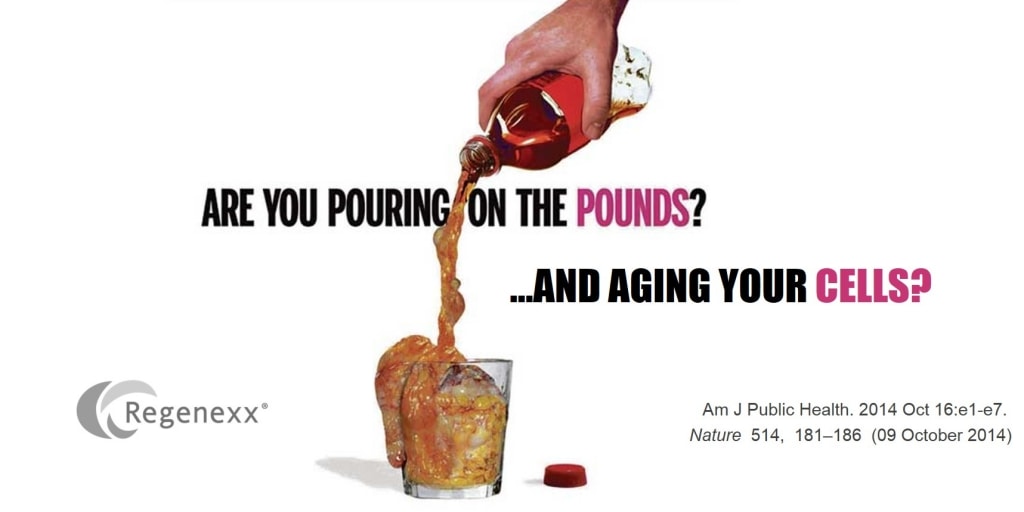Diet and Cells: Soda is Really Bad for You!
How does soda fit into the diet and cells equation? Soda has become an American staple, with some patients using it to replace water. Now a new study shows that it shortens the telomeres in your cells. What the heck are telomeres and why should you care?
When your cells divide, they have an internal clock mechanism that works by knocking off a little bit of the end of a chromosome. This makes sure that cells can only divide so many times before they are no longer eligible for division and are placed into self-destruct mode (apoptosis). When you’re young, these telomeres are nice and long and when you’re old, they become short. So old cells that are on their way out have short telomeres.
Soda has had a rough ride recently in the medical research literature. First, a paper in the journal Nature showed that diet soda messed with the good bacteria in your gut that helps to keep people thin and caused blood sugar abnormalities. This is a huge issue, as many overweight people drink diet soda in a bid to control their weight and the study suggested that they may be causing more weight gain and metabolic syndrome (poor blood sugar control). Now this new study takes a swipe at sugared sodas and how they impact telomeres.
The telomere study in the American Journal of Public Health looked at 5,300 patients who drank either sugared soda, diet soda, or juice. The authors measured telomere length of the white blood cells. They found that sugared soda drinkers had shorter telomeres and thus older cells, while diet soda drinkers and juice drinkers didn’t seem impacted.
The upshot? Lay off the soda if you’re concerned about cell health and aging! The diet kind may mess up your gut bacteria leading to diabetes and the sugared kind is likely aging your cells before their time! Should you drink juice? For some people this would be OK, but if you have the right genes, the liquid sugar in most off the shelf juices will spike your blood sugar and also cause metabolic syndrome through that mechanism. So stick with water!

NOTE: This blog post provides general information to help the reader better understand regenerative medicine, musculoskeletal health, and related subjects. All content provided in this blog, website, or any linked materials, including text, graphics, images, patient profiles, outcomes, and information, are not intended and should not be considered or used as a substitute for medical advice, diagnosis, or treatment. Please always consult with a professional and certified healthcare provider to discuss if a treatment is right for you.

